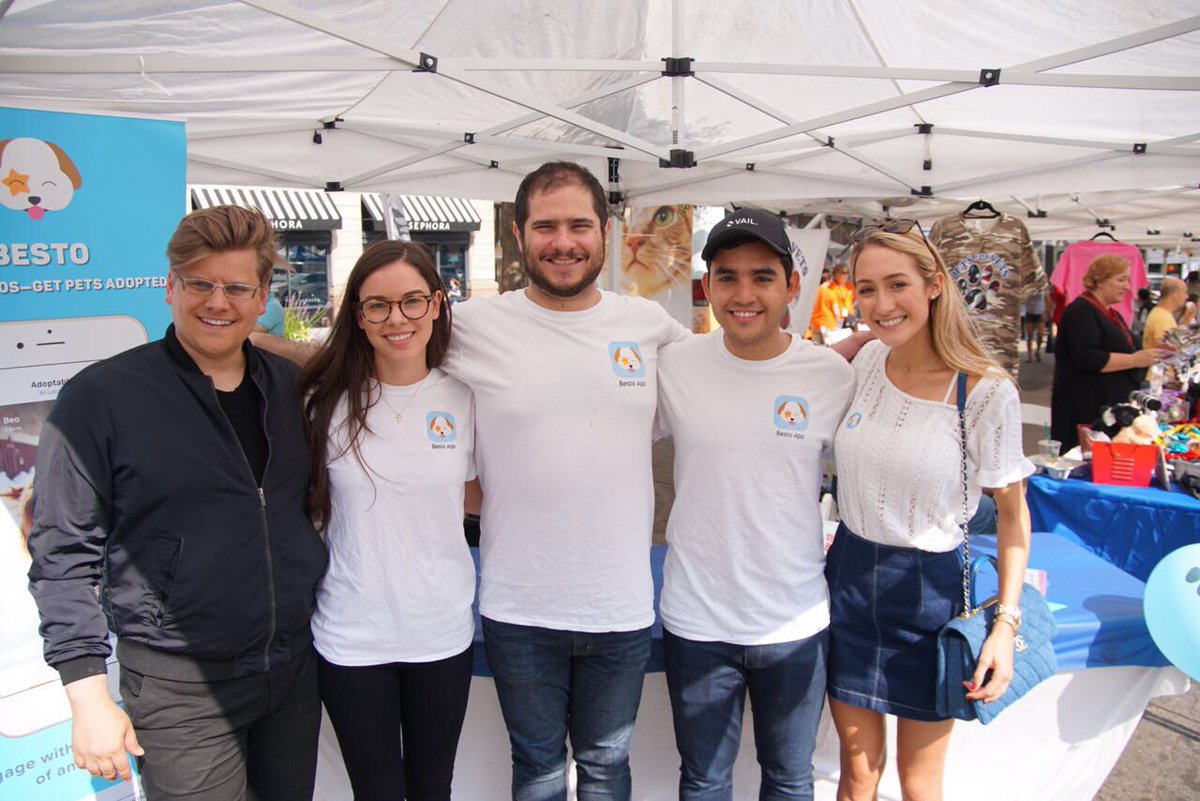Three days out of the week, Besto cofounder Luis Gamardo leaves his New York apartment in the morning to hop on a bus for two hours. Destination: Philadelphia, Pa.
Philly is where Gamardo, 25, has decided to grow and settle his startup, the publisher of an app that helps foster pets get adopted.
“For me, the biggest priority as a CEO is access to talent, and I found that here in Philly,” said the CEO, who tapped Penn grads Joseph Pacheco and Victor Galli out of the Philly area to join as CTO and COO, respectively.
Besto has three full-time employees and is based out of WeWork’s 1430 Walnut St. spot.
“People here come from a really diverse background,” the cofounder said. “Philly gave us a chance to find talent that was aligned with what we’re doing.”
#WhyImStillSingleIn4Words I date my dog… 😂🐶 Maxwell is available for adoption, download the Besto App to learn more! #bemybesto @McDonalds pic.twitter.com/tsgl2TPd2D
— Leafwell (@leafwell_pets) September 29, 2017
Another plus for Philadelphia, as we’ve heard it before from Philly natives: it helps the company operate at lower costs than tech poles like San Francisco and New York.
But he won’t gloss over the crappy commute. It’s a big hassle, Gamardo said, and he will sometimes just end up crashing with one of his cofounders. That will continue at least until next year but the long-term plan is to move into town, closer to the suburban rescue shelters that have started using his startup’s app.
Down the line, Besto is looking at setting up a freemium model and improving its monetization, but for now it’s focused on building a community around sharing videos and pictures of rescue pets available for adoption.
The super-commuter trend (having regular commutes of two hours and change) is not new, of course. A 2012 NYU study, said Philly had those in the tens of thousands, and ranked fifth among big cities for having the highest rate of super-commuters. The study said the number of frequent long-distance travelers in Philly jumped by 50 percent between 2002 and 2009. (With upward trends in the Philly-area economy since then, we’re curious what that figure looks like now.)
Census data from 2010–2015 show 6 percent of New York’s workforce qualifies as super commuters. It’s a trend that grew, at least modestly, in most states last year.
“This is a world-class town with everything you would expect of a big city,” said Gamardo, a Venezuelan immigrant who moved to the U.S. in 2010. “That’s the magic of Philadelphia: the community is big enough so that you have access to large companies but you still have support from local organizations.”
Join the conversation!
Find news, events, jobs and people who share your interests on Technical.ly's open community Slack

Philly daily roundup: Student-made college cost app; Central High is robotics world champ; Internet subsidy expiration looms

Philly daily roundup: Earth Day glossary; Gen AI's energy cost; Biotech incubator in Horsham

Philly daily roundup: Women's health startup wins pitch; $204M for internet access; 'GamingWalls' for sports venues

